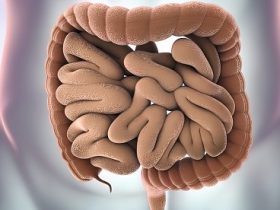Obesity is a multifactorial complex chronic disease. Medical implications are often obscured by patients’ cultural and moral beliefs, shame, bias, a correlation between physical appearance and social acceptance, and others. The prevalence of obesity in the U.S. was as high as 41.9% between 2017 and 2020.
At the recently concluded Pri-Med East Conference in Boston, Barbara Olendzki, RD MPH LDN, Associate Professor, University of Massachusetts Chan Medical School, and Frank J. Domino, M.D., Professor, University of Massachusetts Chan Medical School, gave a thorough presentation on obesity, detailing a comprehensive understanding of recent advances in obesity treatment and management in primary care.
The objectives of the presentation were to 1) review what food is, food digestion and metabolism, 2) analyze the role of environmental influences on patient eating habits, 3) discuss a paradigm to engage patients in healthy living, 4) investigate current evidence on diets and medications, 5) consider clinical scenarios to provide a comprehensive understanding.
A proper diet plan goes a long way in mitigating obesity development and progression. Diet should comprise good fats (limiting bad fats and avoiding horrible fats), high fiber carbohydrates (whole grains, vegetables, fruit), and high-quality protein with good fats (legumes, eggs, broccoli, nuts, fish, grass-fed, and free-range animals). A healthy diet comprises whole grains, plenty of water, increased vegetables, increased fruits, legumes, nuts, good fats, and steady protein from good sources. The clinicians must assess the dietary behavior of the patients. The focus should be to bring about a change in food habits and keep it simple and doable.
Statistics have revealed more deaths in the U.S. because of dietary behaviors compared
to smoking. According to the 2017 World Comparative Risk Assessment report on diet, the leading mortality risks are reported as a result of 1) High Sodium: 3 million deaths & 70 million disability-adjusted life years (DALYs), 2) Low Whole Grains: 3 million deaths & 82 million DALYs, 3) Low Fruits & Veg: 2 million deaths & 65 million DALYs. An irregular diet is reported to contribute 50% of the cardiac risk.
Reports have shown that a low-calorie diet, a low-fat diet (20-30%), a low-carb diet (anything <45% CHO), a Mediterranean diet (low glycemic), vegetarian/vegan diet, intermittent fasting, ketogenic and whole30 diet are beneficial to maintain proper weight. It is important to recognize and thereby limit the unhealthy foods which can lead to obesity and other associated complications. Eating more healthy foods helps in significant weight loss compared to dieting.
The eating environment is also vital in determining dietary intake. It includes the atmosphere, effort to obtain food, social interactions, and distractions in daily life. The way how food is provided or presented also influences what we eat. It includes seeing or smelling the food, what others are eating, how it looks, and the portion size.
Treatment approaches to help people lose weight include motivational interviewing (whatdo you like/dislike now; like/dislike about change), 24-hour diet recall (at every visit), good fruits, vegetables, and fiber in the diet, plenty of water, no artificially sweetened drinks, exercise, teaching mindful eating and tracking what you eat.






